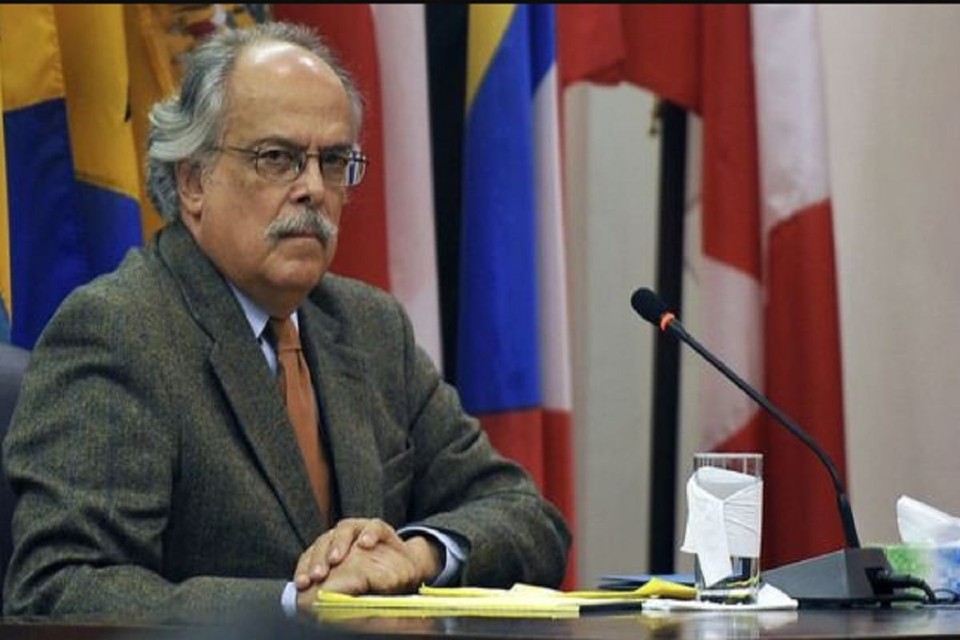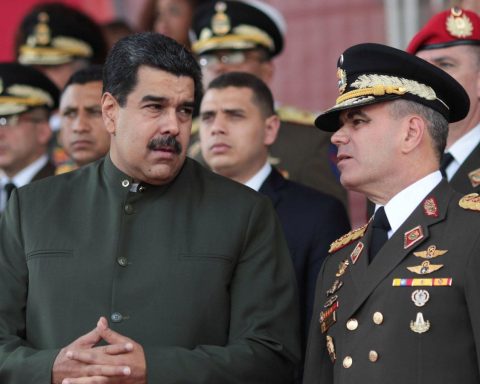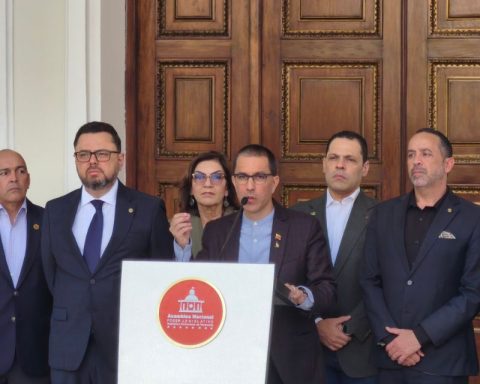Dr. Allan Brewer Carías states that Juan Guaidó proclaimed himself interim president by virtue of the existing power vacuum in Venezuela and consecrating article 233 of the Magna Carta, for which he emphasizes that it was a month before the AN 2015 sanctioned the Statute of the transition; which in his opinion indicates that the interim is independent and precedes the legislative norm, so he cannot eliminate it
The Doctor of Law and professor emeritus of the Central University of Venezuela (UCV) Allan Brewer Carías warned that the decision of the National Assembly elected in 2015 to want to end the interim government headed by Juan Guaidó, is “unconstitutional” because that interim was not created by the legislative body and therefore cannot be eliminated.
In a document dated this Tuesday, December 27, Brewer Carías assures that the interim does not end with the reform to the Transition Statute proposed by the G3 because the status of president in charge “precedes and is independent of the Transition Statute; It was not created by the National Assembly nor can it be eliminated».
It warns that, if the reform is approved and unconstitutionally assumes the functions of the interim government, it will create managerial chaos and at an international level it would be without any effect, since it does not affect the “usurpation” that the AN 2015 would be making of the presidency in charge.
*Read also: Encuentro Ciudadano, Proyecto Venezuela and Nuvipa call for unity when deciding on interim
Dr. Brewer Carías details that Guaidó, as of January 10, 2019, took office as president in charge of Venezuela in accordance with article 233 of the Constitution as there is no “legitimate president” in the country and explains that article 333 of the Charter Magna justified that the president in charge continue in charge of the National Assembly until 2025, when free elections are achieved.
Similarly, remember that Juan Guaidó assumed the presidency in charge before the AN 2015, on February 5, 2019, sanctioned the Transition Statute; which indicates that this proclamation is independent and comes before the actions of the Legislative Power.
It also recalls that creating a kind of “parliamentary government” is unconstitutional and violates the principle of the separation of powers, since the National Assembly, its Delegate Commission and the Asset Protection and Administration Council are given the powers that the Statute assigned since 2019 to the agencies of the interim government of Guaidó.
*Read also: Rodríguez on the possible end of the interim: they knew they had an expiration time
“If said reform is approved, the National Assembly, by trying to create a “government” parallel to that of the President in Charge, would also incur a usurpation of authority and its acts would be null and void in accordance with article 138 of the Constitution,” says the text of Dr. Brewer. Carías.
AR Brewer-Carias. On the reform of the Transition Statute Dec 27, 2022[1] by As it is on Scribd
*Read also: G3 ratifies will to eliminate interim and ensures safeguarding of assets
Eliminating the interim is an attack on democracy
The Center for Political and Government Studies of the Andrés Bello Catholic University (UCAB) considers that the eventual elimination of the interim government would be a defeat for the opposition, for which reason they call on the sectors that are promoting the dissolution of the interim government in the 2015 National Assembly to reconsider their decision and take into account the effects of such a measure. in Venezuelans and their desire for change in the administration of the country.
Although they acknowledge that the interim government did not achieve its objectives, the fact that its dissolution is decided weakens the opposition position in Mexico and the primary process to elect the unitary candidate. In his opinion, if this process breaks down, it would lead to electing an opposition representative through consensus and that would have less support from the people.
Along with this, they warn that the fact that the AN 2015 assumes functions of the Executive and a “parallel government” is established, indicates that it attributes powers that are outside the Constitution. In addition, it stresses that Venezuela’s assets abroad are put at risk because, in the eyes of the US, the president in charge of Venezuela is the only one who can manage certain funds that are retained in the Federal Reserve of that country.
Representation before the international community is also threatened because it weakens the position of the interim and of the opposition, while stressing the importance of their support to overcome the crisis and maintain democracy. For this reason, they ask the political parties to think about unity.
statement-cepyg-ucab-27.12.22 by As it is on Scribd
Post Views: 971















